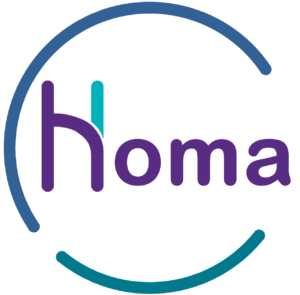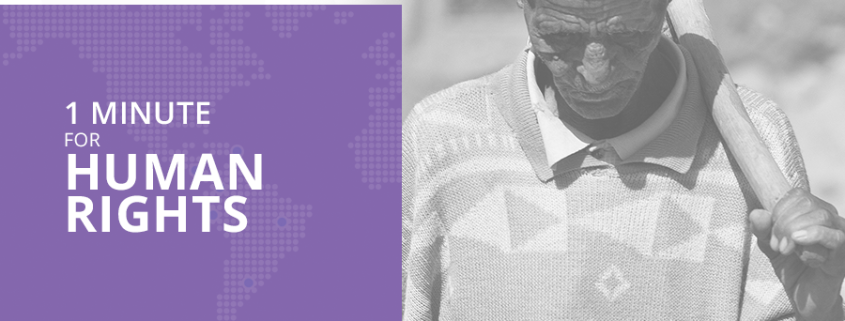UN Working Group on Business and Human Rights: Homa releases analysis of the Report of the visit to Brazil and launches campaign for the legally binding Treaty.
The United Nations (UN) Working Group on the issue of Human Rights and transnational corporations and other business enterprises submitted to the Human Rights Council, on June 16th, the visit Report held in Brazil between December 7th and 16th, 2015. The visit – the first to Latin America and the Caribbean region – is part of the WG mandate, which has as one of its goals, besides promoting the dissemination and implementation of Ruggie’s Guiding Principles, the diagnosis of human rights situation in the countries where it goes. It also makes recommendations to national governments, enterprises and civil society.
The report makes important points about crucial issues concerning the current state of human rights protection in Brazil, especially with regard to major infrastructure projects, such as Belo Monte hydroelectric plant, to the agribusiness and to mega-events such as the 2014 World Cup and the 2016 Olympics. In this sense, several communities directly and indirectly affected by violations had the opportunity to describe their experiences to the Working Group in one of the five visited cities. Reports of violations that had occurred as a result of Belo Sun mining project on Xingu River, of the development projects in Sepetiba Bay, in Rio de Janeiro, of Suape Port industrial complex in Recife, Pernambuco, of the dams proposals for hydroelectric plants at Tapajós River, among others, were reported to the Working Group on these occasions.
Homa – Human Rights and Business Centre was also present at the meetings held in Rio de Janeiro and Mariana. This last city had just been the stage of one of the largest environmental disasters in the history of the country, with the disruption of Fundão dam in Bento Rodrigues district. There, it was handed a report made about the Açu Port Complex and its devastating impact on the population of the city of São João da Barra, in the state of Rio de Janeiro, which is also quoted in the published text.
The report produced by the WG also shows structural problems in the environmental licensing process of these projects. It expresses the group’s concern about the promiscuous relationship between private capital and the government in the country, criticizing the high degree of influence that large corporations have in the decision-making process and the formulation of public policies and legislation processes. Moreover, it exhibits the inconsistent position of the State, which acts as the major funder of such projects through the state development bank, BNDES.
Special emphasis is given to the weaknesses found in the public hearings, held as part of the environmental licensing process, and the need to take action to reduce asymmetries between the participation of affected people and those involved in these projects, such as large corporations and the State itself. This emphasis respects the Convention 169 of the International Labour Organization, which deals with the right of local people to be consulted previously, freely and in an informed way – from the early stages of planning – whenever an Administrative or Legislative Decision might affect their communities, their land or their way of life.
The Brazilian government, however, played a sad role during the Report presentation session. It tried to rebut data and facts already widely disseminated by non-governmental organizations and academic research centers with extensive advocacy and research tradition in the area. By trying to cover up or to mitigate the impact of repeated Human Rights violations by companies in our territory, the Brazilian State tarnish a strong standing tradition within the International System of Human Rights Protection, and whose logic should also be applied to the UN Human Rights Council. That is the recognition of the country’s responsibility in the event of said violations and in the proposition of improvement in prevention actions and in compensation for damages to those affected.
Voluntaristic approach and focus in the States
Despite significant criticism made by the Working Group, the simple reading of the report allows us to note the focus given to the state entity and the voluntary character that defines the Guiding Principles: out of the 32 recommendations made in the text, only 7 of them were aimed at corporations. Some stretches reinforce even further this position, especially in the analysis of the Mariana disaster case, in which the report states “Despite Samarco being responsible for repairing the damage, the federal government remains the primary insurer of human rights of the affected communities”.
The mining case in Mariana is particularly iconic in that sense, given that its own corporate structure is a classic example of one of the sides of the so-called architecture of impunity. It is defined as corporations use of elaborate chains of distinct legal personalities in order to protect its assets in case of serious human rights violations, such as what happened in Bento Rodrigues. The negotiation of the restructuring agreement between the enterprises and the State in this particular case was also distinguished for the lack of participation of the affected communities.
Given these statements, it behooves us to reaffirm the insufficiency of voluntary measures such as the Guiding Principles in the field of protection of human rights against abuses committed by transnational corporations. Against the climbing power and influence of transnational capital it is necessary to impose rules and binding policies that restore the primacy of respect and protection of human rights at the expense of investment protection. For this reason, the adoption of the resolution 26/9, establishing intergovernmental working group, with the mandate to prepare an international legally binding instrument, of Ecuador and South Africa’s initiative, represents an important milestone in the resumption of discussions on the objective imputation of the business entity, as well as the establishment of international cooperation instruments to obtain effective remedies for victims of violations.
In order to report this pattern of activity of companies in the national territory, which is enhanced due to the impunity from which corporations benefit, often with the connivance or complicity of the States where they develop their economic activities, Homa supports the creation of a binding treaty, joins the Global Campaign to Dismantle Corporate Power and Stop Impunity. And from today on it launches its campaign “1 minute for Human Rights” (1minutopelosdireitoshumanos.com/en).
The campaign consists of a series of videos with interviews conducted during the III International Seminar on Human Rights and Business, organized by Homa and Friedrich Ebert Foundation (FES) and held at PUC-Rio, between April 27th and 29th, 2016, that brought together more than 40 panelists from affected by Human Rights violations to member of non-governmental organizations, government officials and academics, both Brazilian and international.




Leave a Reply
Want to join the discussion?Feel free to contribute!